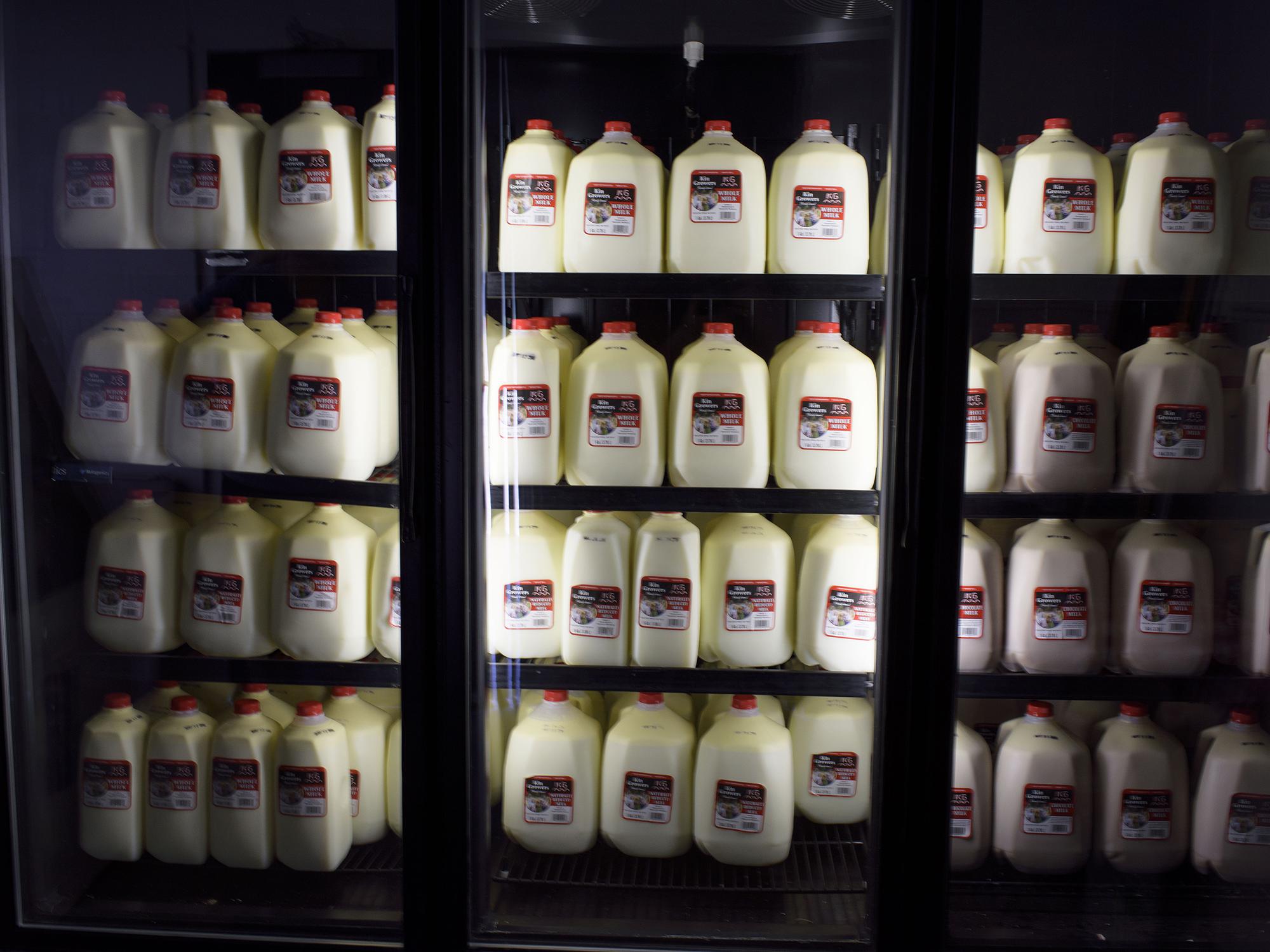Information Possibly Outdated
The information presented on this page was originally released on May 31, 2019. It may not be outdated, but please search our site for more current information. If you plan to quote or reference this information in a publication, please check with the Extension specialist or author before proceeding.
Support dairy farmers by buying their products
STARKVILLE, Miss. -- National Dairy Month is a great time to consider the numerous health benefits dairy products provide and how supporting the industry indirectly helps a variety of people.
Data from the International Dairy Foods Association shows the dairy industry had more than 6,000 direct jobs in Mississippi in 2017. It paid more than $182 million in wages and had an economic impact of $871 million.
“Dairy farmers buy seed to grow crops to feed their cattle, support local feed cooperatives to buy feed they can’t grow themselves, purchase equipment, and pay utilities and taxes. They employ farm workers, truck drivers, construction crews, retailers and factory workers,” said Amanda Stone, dairy specialist with the Mississippi State University Extension Service. “The harder-to-quantify benefit they provide is stewardship of their land to keep it in good condition for the future.”
MSU Extension dairy specialist Amanda Stone explains the role diary producers play in Mississippi’s economy.
Many of the state’s 65 dairy farms have been in families for generations. Buying dairy products helps these businesses keep going.
“The average dairy farmer is nearing retirement age, so, although they are capable of doing many tasks after being on a farm for so long, it would be difficult to find someone to hire them,” Stone said.
Another consideration for consumers is the amount of nutrition contained in just one 8-ounce cup of milk. For starters, that cup contains 8 grams of protein, which supplies energy and assists in tissue and muscle growth and repair. Other than dairy products, only meats, dried beans and soy contain this critical nutrient.
“Milk is a good recovery drink for athletes because it includes both carbohydrate and protein,” said Brent Fountain, Extension nutrition specialist. “The body uses carbohydrate for energy and protein to build and repair muscles after exercising.”
Dairy products, including everyday foods like cheese, ice cream and yogurt, also contain calcium, phosphorous and Vitamin D, all of which play roles in strengthening bones.
“Your bones continue to grow through your mid to late 20s, which is why it’s so important for young people to consume good sources of dairy and calcium-containing foods during this crucial phase of their lives,” Fountain said. “It is also important for older adults to continue to consume dairy products and spare the body’s calcium stores from being used for other body processes.”
That cup of milk also has riboflavin and niacin, which aid in blood flow; and potassium, which lowers blood pressure. Vitamin A contributes to skin and eye health, while Vitamin B helps convert food into energy.
Fountain recommends three servings of fat-free milk, cheese or yogurt each day. Six ounces or 3/4 cup of yogurt is considered a serving, as is 1 1/2 ounces of hard cheese.
“Nonliquid dairy products like cheese or ice cream can be good alternatives to milk for someone with lactose intolerance, because they contain much less lactose, which is the sugar found in milk,” Fountain said. “When selecting your choice of dairy foods, the key is moderation and variety. Choose dairy foods that are high in calories sparingly.”
Being an advocate for dairy products means supporting people who, because of price fluctuations and supply, are not profiting. They are actually paying to produce the food consumers need to survive.
“Buying dairy products will help reduce the oversupply and help get prices back to a more reasonable level. We are losing small- to medium-sized family dairy farms at an alarming rate because of the current state of the dairy industry,” Stone said. “Call your legislators and tell them how important the American family farm is to you. Go visit a dairy farm and learn about what they do so you have a better understanding of the human aspect of this situation, and thank farmers for devoting their lives to feeding your family.”









